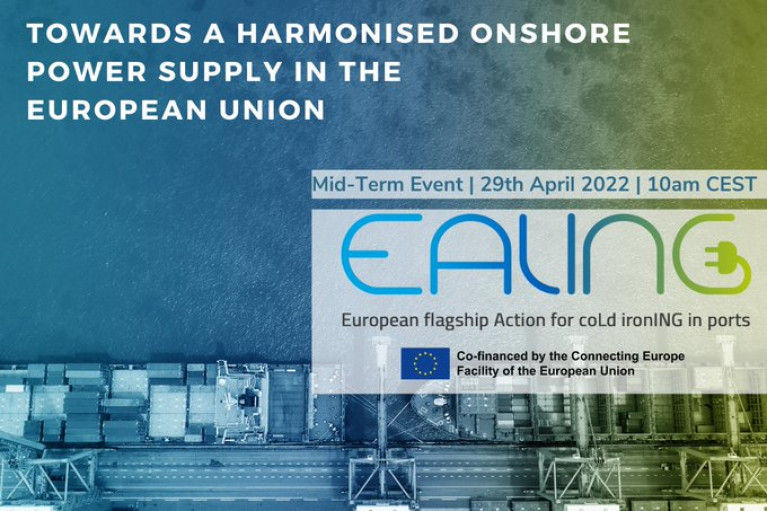Displaying items by tag: EALING
Ports Industry Webinar: Towards a Harmonised Onshore Power Supply in the European Union
‘Towards a Harmonised Onshore Power Supply in the European Union’ is the title of the EALING Mid-Term Event webinar for the European ports industry next Friday 29 April.
Emissions reduction at the ship-port interface is one of the key drivers to reach the IMO 2030 and 2050 decarbonisation goals and to face the key challenges of the EU Green Deal.
Regulatory, technical, operational and economic actions to reduce greenhouse gas emissions are required to move towards a lower-carbon future.
Establishing a suitable framework based on EU and national legislations for a harmonised European approach to the onshore power supply (cold ironing) is at the heart of EALING (the European flagship Action for coLd ironING in ports).
The results from EALING Project activities will be deepened and discussed together with industry players involved in building a more competitive and sustainable Trans-European Transport Network (TEN-T) during the event.
The webinar takes place Friday 29 April from 10am to 1pm CEST (9am to 12pm IST). The full agenda is available from the EALING Project website, and registration for the Zoom webinar is now open.
Irish Maritime Development Office in Partnership with European Flagship Action for Cold Ironing in Port
The Irish Maritime Development Office (IMDO) is a partner Motorways of the Sea project titled “European flagship Action for coLd ironING in ports “ (EALING).
The IMDO will be undertaking technical studies aimed at identifying the locations and requirements for OPS in Irish ports and developing high level designs & costs for the systems that could be deployed.
The EALING consortium has 22 partners from across Europe that represent the maritime community with Port Authorities, consulting companies in power system, energy and engineering, logistics, research and development bodies, IT suppliers.
The project aims to provide a common EU harmonised and interoperable framework for the transition to electrification and ultimately accelerate the effective deployment of OPS solutions in the EU maritime ports.
Further details are available on the project website here.




























































